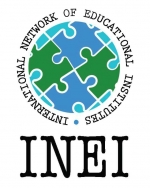Teacher Education
About the IALEI research theme 2008
The preparation of the first joint IALEI research report involved solicited contributions from nine Alliance members (University of Sao Paulo joint later) as well as a survey of current literature on issues identified as pertinent in the member countries. Given the spread of countries and resources available within IALEI, it was decided that the report on ‘Teacher Education’ would be prepared using available published sources and submissions prepared by member institutes. Focus was made on teacher education rather than issues related to teaching and instruction and issues related to the teaching profession, important as they are. The lead researchers developed a list of topics and questions as a framework around which, over a period of several months, they worked to gather the views of Alliance representatives on the key issues while simultaneously examining the extensive literature available in English. The report is a result of these efforts. International comparisons between countries that share broadly similar cultural and educational traditions are already a difficult task; scholars recognize that within-country variations are both extensive and significant. This does not depend upon size alone; for example, both China and the USA have very large education systems but there is much greater diversity in teacher education provision in the USA. IALEI represents countries at different stages of socio-economic and educational development and with distinct cultural traditions. It is therefore inevitable that some of the generalizations we advance may be both true and untrue, depending on context and culture. IALEI see diversity in educational contexts as a valuable feature, as a unique challenge. In an era of greater globalization and educational standardization, of policy borrowing and of international comparisons of achievement, we see a need to respect context and to appreciate how countries with different traditions and resources deal with the challenges of teacher education. This is not simply a matter of ensuring representation. We believe there are unique and distinct traditions within which education and pedagogic systems are embedded that can provide valuable insights. For example, Chinese cultural traditions have much to say about the virtues needed of teachers and the roles teachers play; Singapore seeks to draw upon its links to Asian traditions while it simultaneously appropriates ideas from Anglo-Saxon and continental traditions. Both researchers and policy makers want the same thing—high quality teachers. Both want evidence of what is likely to work best. IALEI have sought to clearly set out some propositions to guide policy choices. The balance has been difficult to achieve but we hope we have achieved it to a reasonable extent.
Recommendations
The Alliance calls for an acknowledgement of teachers as 21st century knowledge workers, deserving of being prepared and treated as professionals, with career long commitment to learning and development. Read the recommendations here.

Reports
Transforming 21st century teacher education through redefined professionalism, alternative pathways and genuine partnerships.
Conference
The international conference on `Teacher Education´ was held on 18 August. The presentations and round-table discussions held at the conference were recorded on video and can be viewed here. Also, you can download the PowerPoint presentations from the conference.
IALEI researchers engaged in the 2008 theme
The names of the researchers engaged in the 2008 project are:
Australia, Melbourne Graduate School of Education, University of Melbourne: Associate Dean of Teacher Education Christine Ure and Associate Professor Collette Tayler
Brazil, Faculty of Education, University of Sao Paulo: Director Sonia Teresinha de Sousa Penin
Canada, Ontario Institute for Studies in Education, University of Toronto: Dean Jane Gaskell
China, School of Education, Beijing Normal University: Professor Zeng Xiaodong
Denmark, Department of Education, Aarhus University: Dean Lars Qvortrup
South Korea, College of Education, Seoul National University: Professor Cho Youngdal and Vice Dean Sun-Geum Baek
Singapore, National Institute of Education, Nanyang Technological University: Director Lee Sing Kong, Professor Steven Tan Professor Saravanan Gopinathan
UK, Institute of Education, University of London: Dean Chris Husbands and Dean of Doctoral School Andrew Brown
USA, School of Education, University of Wisconsin Madison: Professor Ken Zeichner
The chair of the IALEI research team 2008 is Professor Saravanan Gopinathan, National Insitute of Education, Nanyang Technological University, Singapore.

